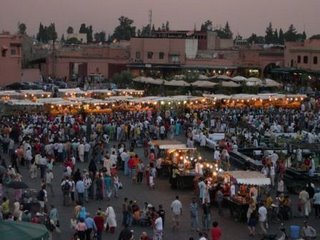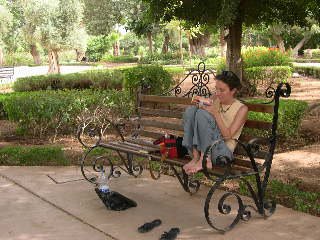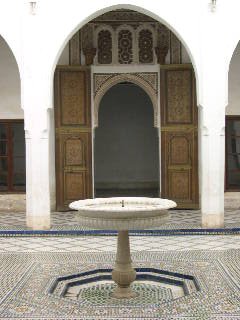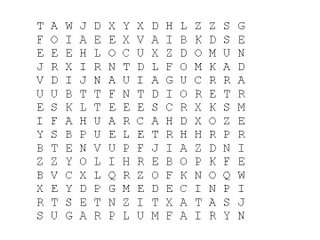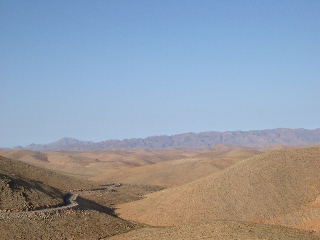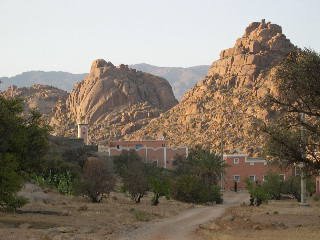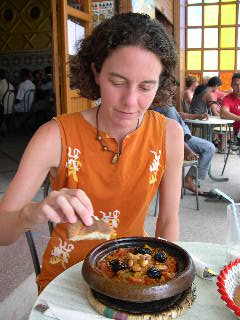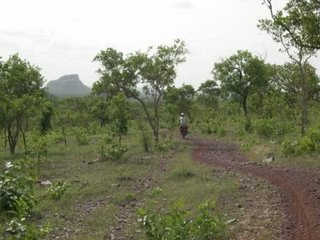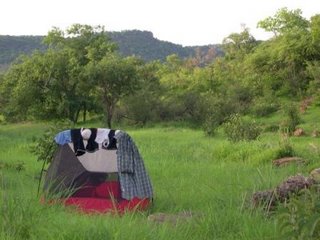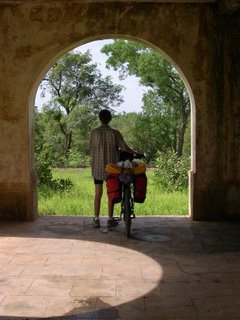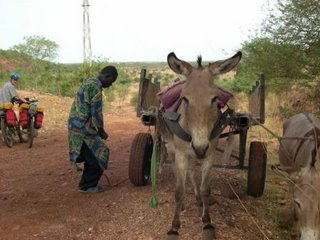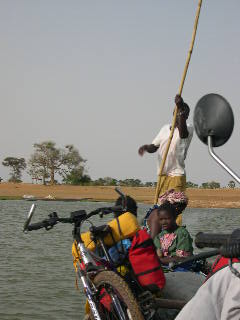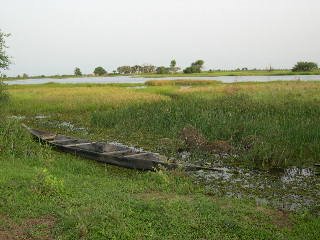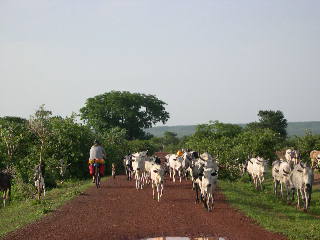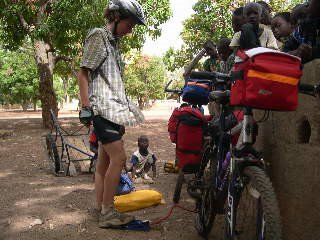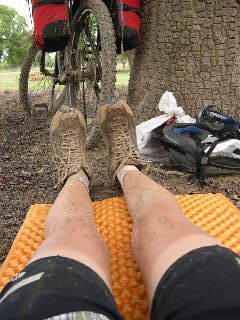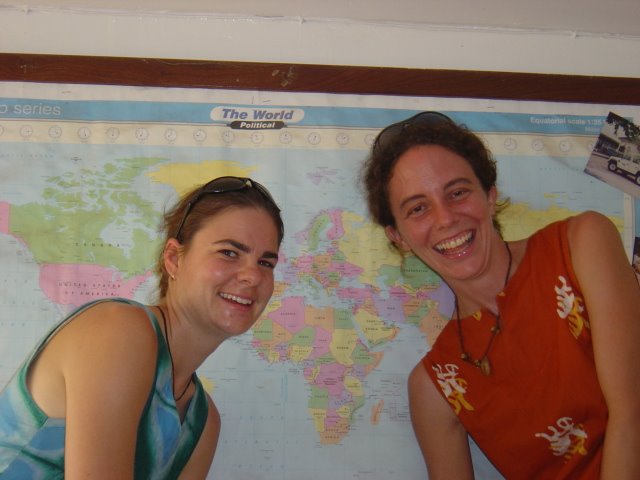How a thousand kilometres can be just a few and how a few kilometres can be a thousand.Kayes to Selibabi (160 km as the crow flies)
Our driver, who bears an astounding likeness to Richard Dreyfuss, jumps into the Landcrusier tabacco pipe in mouth and we gun out of the station, our rooftop bikes effectively delimbing overhanging trees as we go. There is not so much a road between the two border towns of Kayes and Selibabi as a series of tracks that run parallel to and through dry and some not so dry riverbeds. Richard is a superb driver and has navigated hours of bush when we come across a river. We pause to watch the women walk across, the water reaching their midsections, at least. Richard contemplates our situation silently for a few minutes before sliding the truck into gear and storming into the river. And we almost make it, even as the water flows over the truck's hood. It is the steepness of the bank on the far side that is our downfall. So 3/4 of the way across, all the passengers scamper out and try to push the truck out. Waist deep water and all. The fourteen of us and the villagers who have come to help. When that plan fails, we counterintuitively resort to pushing the truck back into the river in order to get the engine started. With cheers of support, Richard manages to clear the bank, leaving the barefoot passengers to chase after him and the steaming engine. So it continued until we had bumped across endless desert landscape, crossing the border and reached the town of Selibabi.
Selibabi to Noakchott (650 km of Mauritanian love)Our driver's favourite word is
hunh, which comes as both a question, an affirmative and interspersed freely throughout his speech. There is a road for the most part from Selibabi to Noakchott and should you require a night long rest stop midway do be sure to call in at the Auberge "dirty mat on the ground at the lorry station" in Kaedi. Enquire about the spot next to the place where they slaughter the goat first thing in the morning.
In a burst of creativity that can only be brought on by a certain level of sleep deprivation and early morning butchering we piloted a new programme entitled "Good Morning Mauritania." The live broadcast, from our shared front seat, brought us great hilarity for the rest of the morning.
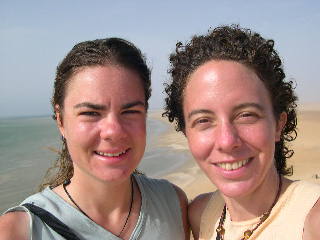 Noakchott to Noadhibou (4 smack 6 smack 5 smack km)
Noakchott to Noadhibou (4 smack 6 smack 5 smack km)
Our driver either had dentures that could really have used some Polydent or some mutton that had been stuck in his teeth since the '88 Olympics. Other than that the trip was remarkably uneventful. Just many miles of desert with a headwind we were thankful not to be battling. Oh so comfortably sharing, again, the front seat of the Peugot.
 Noadhibou to Dakhla (420 km of waiting)
Noadhibou to Dakhla (420 km of waiting)Our driver looked prepared to leave in about 1 hour when we arrived at 7:30 am, so it really shouldn't have been much of a surprise when we rolled out of the station at 3:30 pm. Another rather uneventful trip on tarred road despite the copious number of stops for customs, police and gendarmie. Not to mention the few years of my life that may have passed while waiting at the Moroccan border.
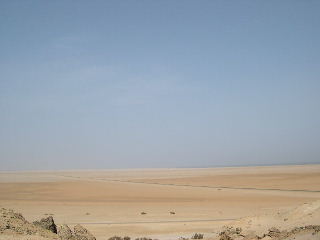 Dakhla to Tiznit (1100 km of pure luxury)
Dakhla to Tiznit (1100 km of pure luxury)
Our driver wore not only a uniform but shoes. The tickets had seat numbers, which meant not only did we get our own seat, but they reclined. Huddled under our sweaters to warm us from the arctic blast air conditioning, the bikes happily stowed below we snoozed away the trip. Stopping not only to pee, but also to eat yummy fish tanjine along the way.

The transitions from Mali, through Mauritania and now in Morocco have been as radical as our change in vehicles. We find ourselves having to adjust to a new world in terms of wealth, food and culture. The body has an ability to move faster than the mind and heart, especially thanks to modern transport. The rapid shift from Subsaharan to North Africa is somewhat overwhelming and so far we lack the words to truly discuss all that has changed both within and without. From here we'll be back on the bikes and heading into the Atlas mountains.
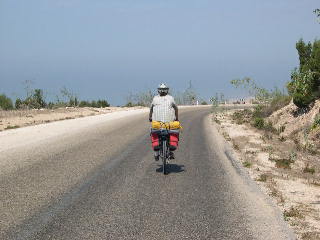 We left the heat of Marrakech for cooler days along the coast. Our final leg of cycling took us through Essaouira and on to Safi with stops en route for ping pong tournaments, buckets of shrimp and naps on the beach.
We left the heat of Marrakech for cooler days along the coast. Our final leg of cycling took us through Essaouira and on to Safi with stops en route for ping pong tournaments, buckets of shrimp and naps on the beach.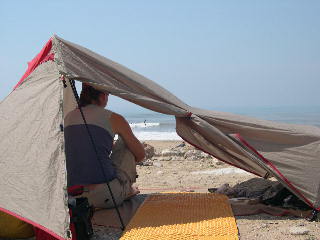 Watching, with envy, the wind and kite surfers north of Essaouira. Hmmm... the next challenge - kite surfing back to Canada?
Watching, with envy, the wind and kite surfers north of Essaouira. Hmmm... the next challenge - kite surfing back to Canada? 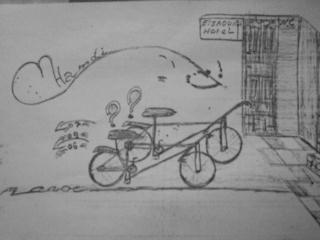 The evening before last there was a shy knock on the hotel room door and our neighbour handed us the drawing below. Unknownst to him, he had captured the bikes at the end of their journey, waiting to be sold in the hotel lobby. We particularly like the question marks which are likely meant as a reference to the identity of the riders, but for us seem to ask the question, "what next?"
The evening before last there was a shy knock on the hotel room door and our neighbour handed us the drawing below. Unknownst to him, he had captured the bikes at the end of their journey, waiting to be sold in the hotel lobby. We particularly like the question marks which are likely meant as a reference to the identity of the riders, but for us seem to ask the question, "what next?"